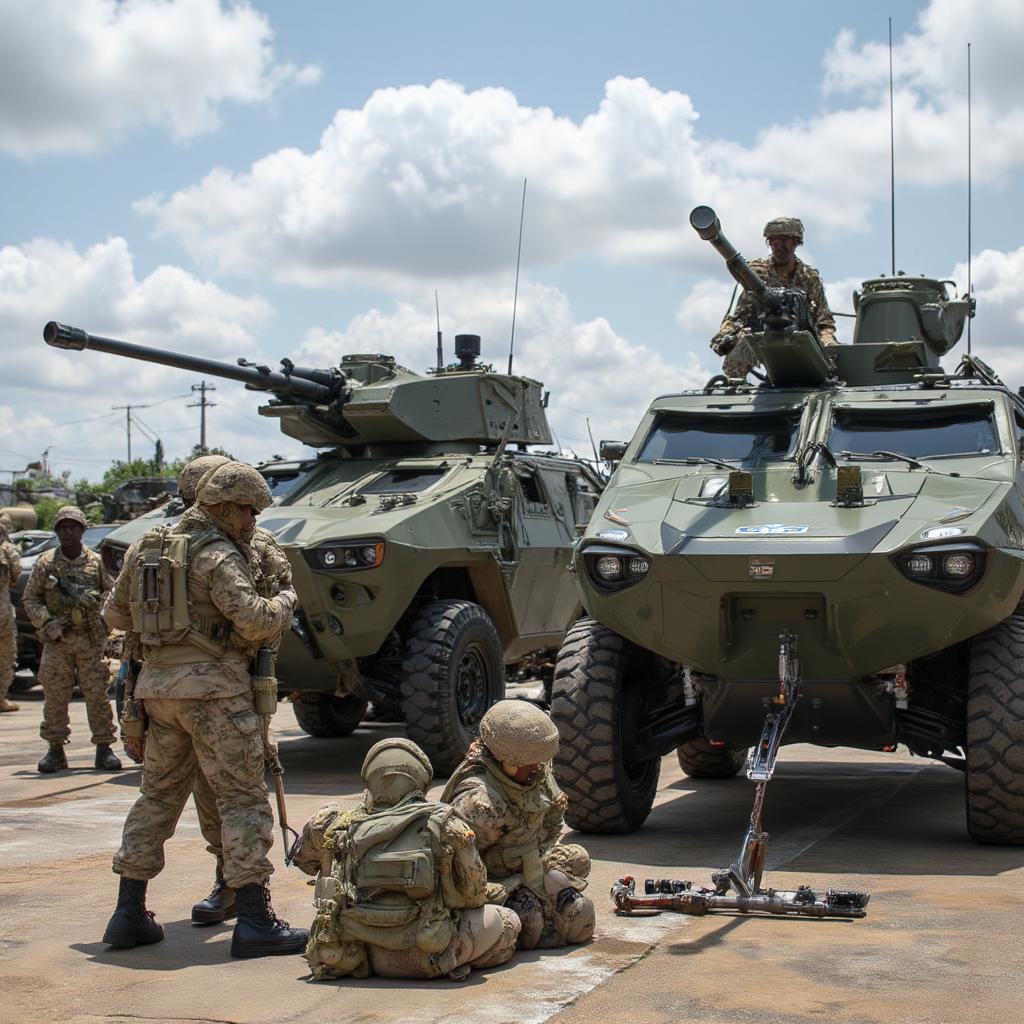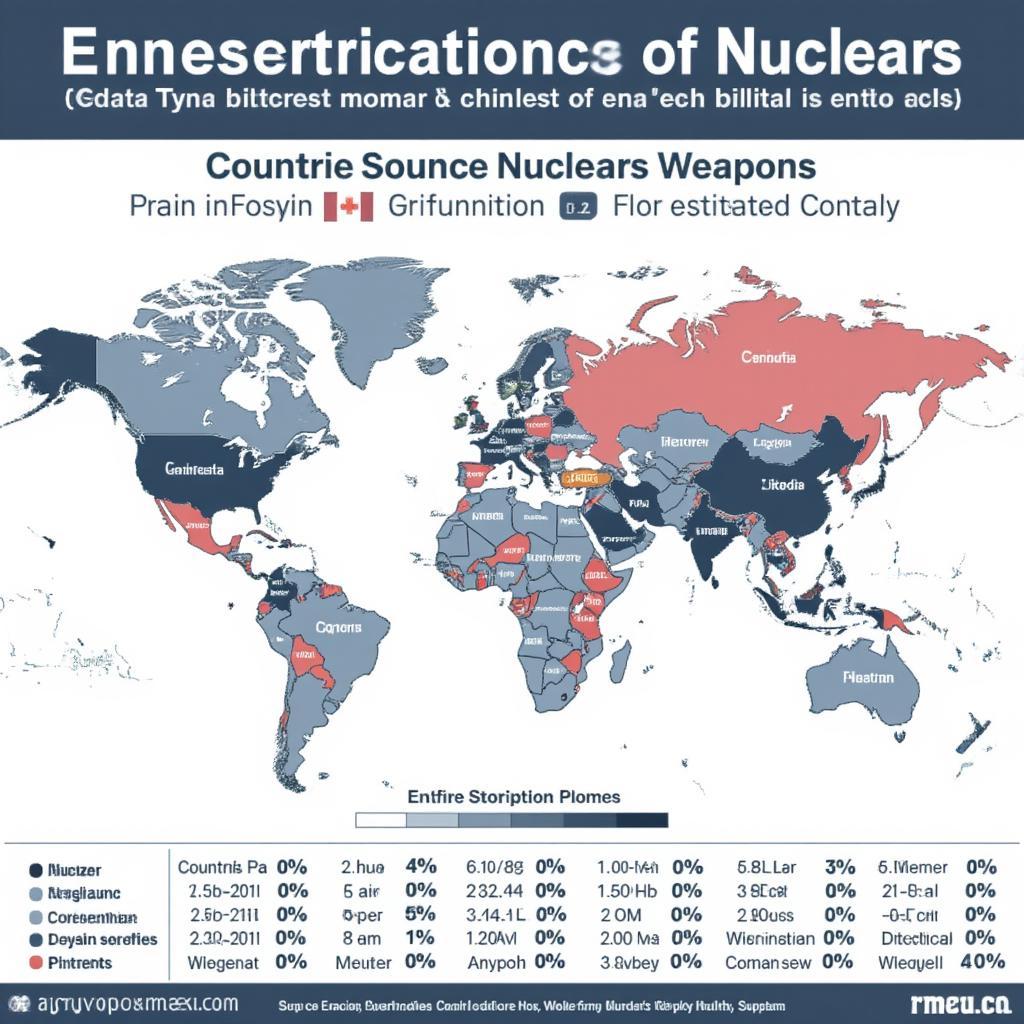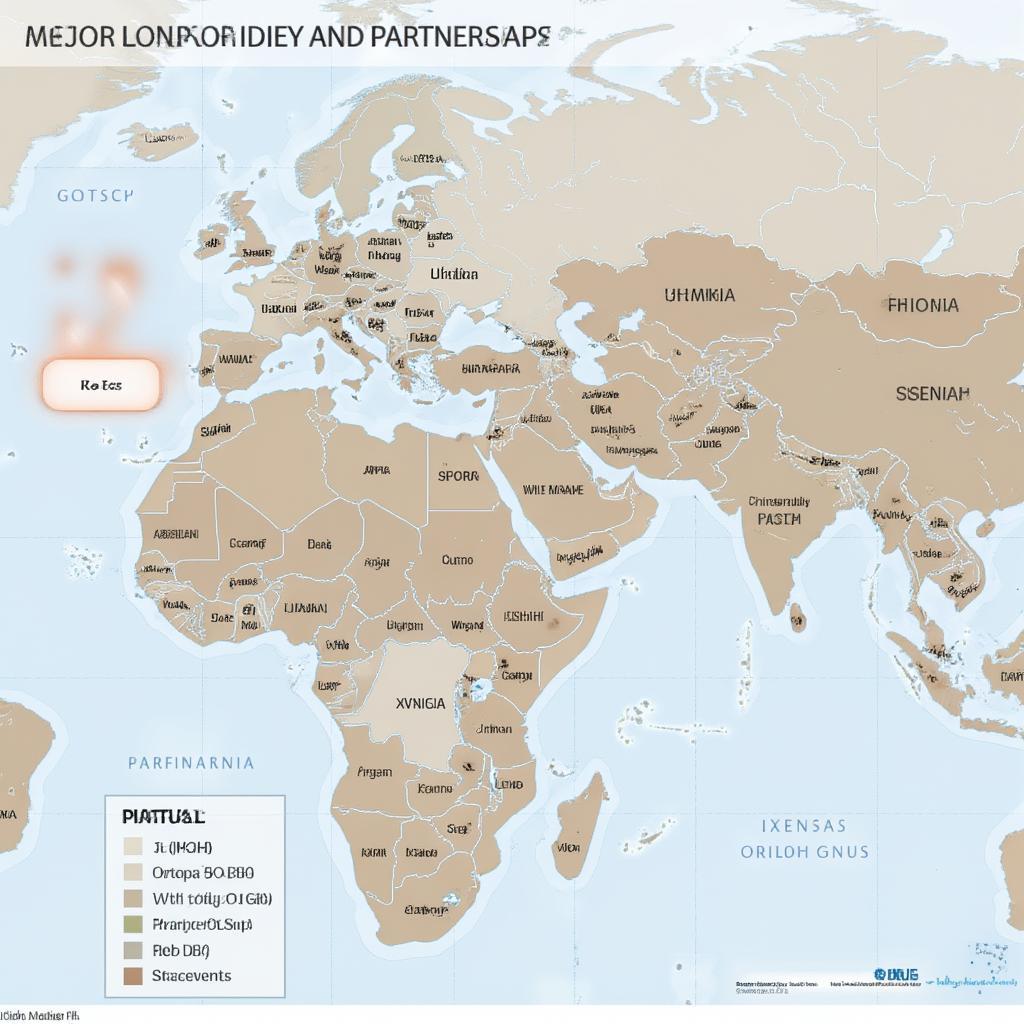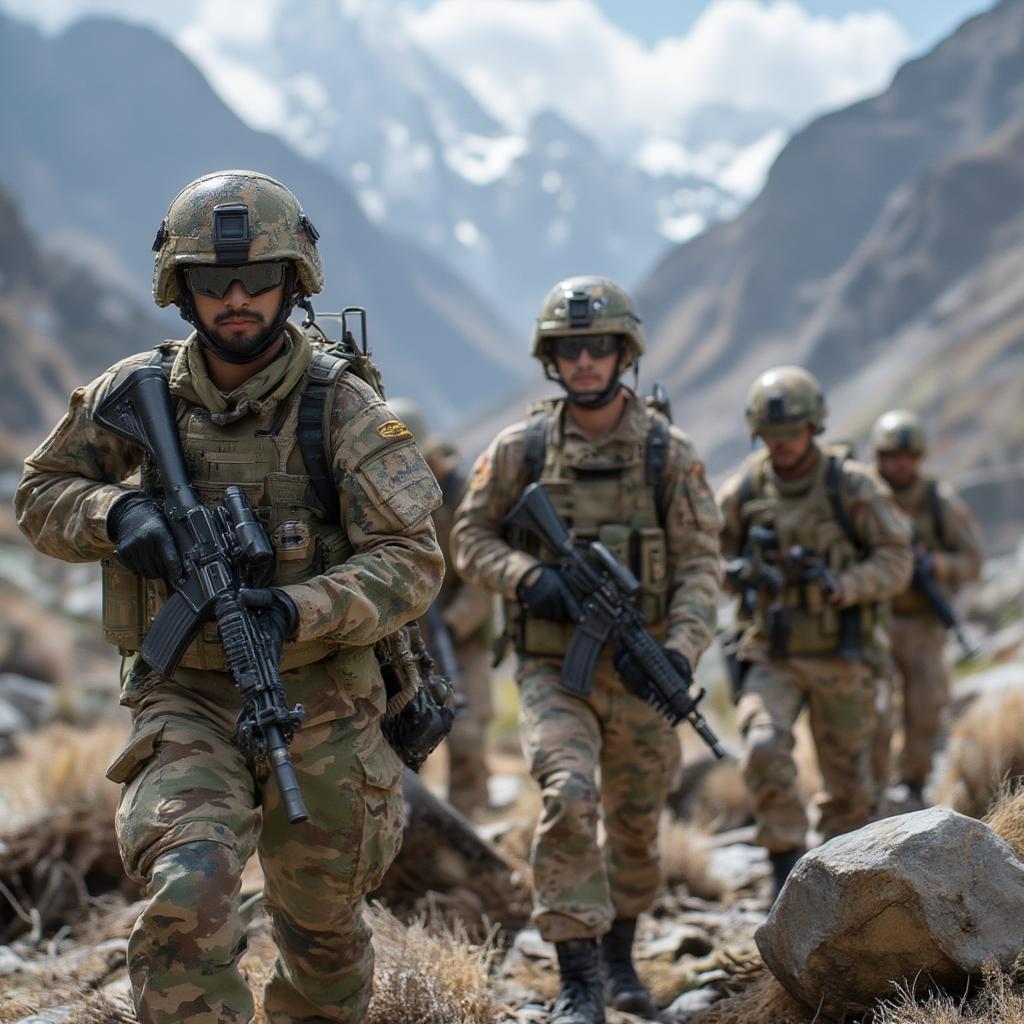Global Fire Power Africa: A Deep Dive into Military Strength

Global Fire Power Africa rankings provide a comparative analysis of African nations’ military capabilities. This complex assessment considers various factors beyond sheer troop numbers, delving into equipment, resources, geographical factors, and financial stability to paint a comprehensive picture of military strength.
Unveiling the Factors Behind Global Fire Power Africa Rankings
The Global Fire Power (GFP) index uses over 50 individual factors to determine a nation’s PowerIndex score, a number closer to zero indicating greater military strength. This intricate calculation avoids simply focusing on the quantity of weapons but instead emphasizes the diversity of weapon systems and their overall balance within a nation’s armed forces. Crucially, geographical factors, logistical flexibility, available natural resources, and the robustness of a nation’s industry are all taken into account. Manpower, while significant, is adjusted to reflect the available pool of potential recruits relative to the overall population. Financial stability, indicated by factors like external debt and available credit, also plays a crucial role in determining a country’s ability to sustain military operations and modernize its forces.
Beyond the Numbers: Qualitative Factors in Military Assessment
While quantifiable data like tank numbers and aircraft carriers are important, the GFP ranking acknowledges the significance of less tangible factors. National morale, leadership quality, and the training level of military personnel significantly impact a nation’s fighting effectiveness. Similarly, access to and efficient utilization of resources, along with a nation’s geographical advantages or disadvantages, contribute to the overall assessment. For example, a country with a well-trained, highly motivated military force operating in familiar terrain might outperform a larger, less cohesive force operating in unfavorable conditions.
Analyzing Military Strength: Case Studies in Africa
Examining specific African nations highlights the complexities of military strength assessment. Egypt, consistently ranked among the strongest militaries in Africa, benefits from a large active military force, a diverse arsenal of modern weaponry, and a strategic geographical location. However, challenges such as economic constraints and internal security concerns can impact its overall military effectiveness. Conversely, a nation like Nigeria, while possessing a large population and significant natural resources, may face challenges related to infrastructure, training, and internal conflicts, potentially affecting its military capabilities.
The Role of Geopolitics in Shaping African Military Power
Geopolitical factors significantly influence military development and strategy across Africa. Regional alliances, border disputes, and the presence of external actors shape defense priorities and resource allocation. The influence of former colonial powers, ongoing conflicts, and the rise of new security threats like terrorism and transnational crime all contribute to the complex security landscape. Understanding these intricate dynamics is essential for interpreting the Global Fire Power Africa rankings and appreciating the diverse challenges and opportunities facing African nations.
The Future of Military Power in Africa: Emerging Trends and Challenges
The African security landscape is constantly evolving. Rapid population growth, climate change, and competition for resources present new challenges for African militaries. The increasing sophistication of weaponry, the rise of cyber warfare, and the need for regional cooperation to address transnational threats are shaping the future of military power in Africa. Investment in technology, training, and professional development will be crucial for African nations to adapt to these emerging trends and maintain stability in the face of complex security challenges.
Addressing Security Challenges: The Need for a Comprehensive Approach
Military strength alone is insufficient to address the multifaceted security challenges facing Africa. Economic development, good governance, and social inclusion are equally crucial for fostering stability and preventing conflict. Investing in education, healthcare, and infrastructure strengthens a nation’s resilience and reduces the likelihood of internal unrest. A comprehensive approach that integrates military capabilities with broader development initiatives is essential for achieving lasting security and prosperity in Africa.
Global Fire Power Rankings: A Tool for Understanding, Not Defining, African Military Strength
While the Global Fire Power Africa rankings offer valuable insights into military capabilities, it is crucial to remember that these are just one piece of a much larger puzzle. The true measure of a nation’s military strength lies not only in its hardware but also in its software – the quality of its personnel, the effectiveness of its leadership, and the resilience of its institutions. Understanding these nuances is critical for a comprehensive assessment of military power in Africa.

Expert Insights:
-
Dr. Adebayo Olukoya, Security Analyst at the Institute for African Strategic Studies: “The Global Fire Power rankings provide a useful benchmark, but they must be interpreted with caution. Factors like troop morale and leadership quality are difficult to quantify but are essential elements of military effectiveness.”
-
General (Ret.) Mohamed El-Sayed, Former Chief of Staff of the Egyptian Armed Forces: “African nations face a diverse range of security challenges, requiring a tailored approach to defense planning. Regional cooperation and capacity building are essential for addressing transnational threats.”
-
Professor Fatima Hassan, Director of the Center for Peace and Security Studies, University of Nairobi: “Investing in human security – education, health, and economic opportunity – is fundamental to building long-term stability and reducing the risk of conflict in Africa.”
In conclusion, Global Fire Power Africa provides a valuable framework for understanding the complex landscape of military strength on the continent. However, a holistic assessment must consider a multitude of factors, encompassing not only hardware and manpower but also the less tangible elements of leadership, morale, and societal resilience. A nuanced understanding of these complexities is essential for navigating the challenges and opportunities facing African nations in the 21st century.




